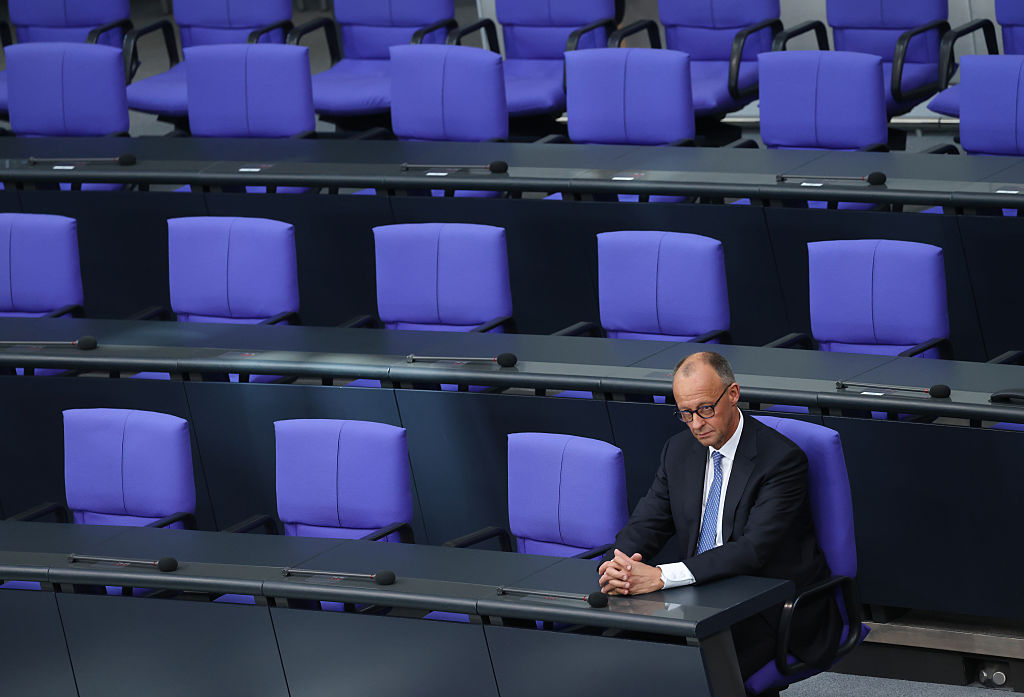The Brussels elite breathed a sigh of relief last month when Bucharest mayor Nicușor Dan defeated conservative populist George Simion to become Romania’s new president. Unless the country’s new four-party coalition government does something no other coalition has yet done, that may prove to be only a brief bump on Romania’s ride towards populism.
Dan’s victory delighted the Berlaymont and its network because he is exactly the type of person they like holding the reins of power. He is a European-minded centrist who broadly supports the elite consensus. With Dan in charge, they knew Romania would not rock the boat on signature items like the European Union’s support for Ukraine.
But Dan’s power is limited. Romania’s prime minister runs the day-to-day government through parliament, as in most European nations. Thus, Dan’s victory was only the first step to entrenching the elite’s ability to guide Romanian policy.
Dan’s appointment of a member of the National Liberal Party (PLN), Ilie Bolojan, as Prime Minister meant the European project could move forward. Bolojan has a massive challenge: bridging the significant differences between the four parties in the coalition while bringing down Romania’s massive budget deficit.
The medium-sized Balkans nation has a gargantuan annual deficit, running at 9.3 per cent of GDP. EU guidelines dictates that nations run no more than a 3 per cent deficit. How to cut that deficit while also meeting Romania’s NATO commitment to increase its defence spending to 5 per cent of GDP by 2035 is a huge challenge.
That challenge is complicated by the fact the largest coalition party, the Social Democrats (PSD), have been in charge for much of Romania’s post-Communist history. They are the ones who created the spending to begin with. It will be very difficult to persuade them to undo so much of their achievements, especially since the coalition agreement stipulates that it will get to choose the prime minister in 2027.
The government therefore has turned to the typical mix of revenue and tax hikes and small spending reductions to start the process. This time tested, establishment-favoured package will cap pensions and wages for government employees, cut state payrolls by 20 per cent, and increase taxes in a host of ways. It is expected to cut the deficit in the next fiscal year to “only” 7.5 per cent.
Further progress can only come through two channels: further tightening Romanians’ belts or dramatically increasing economic growth. Either approach is risky for Brussels.
Establishment-backed austerity almost always is unpopular. Jobs and incomes that had been supported by the excessive borrowing get eliminated or reduced, and people don’t like to suffer. Incumbent governments that impose this fiscal straitjacket nearly always go down in the polls.
That decline will likely last for some time given the magnitude of Romania’s problems. The official goal is to get the budget deficit down to under 3 per cent by 2030, which means five years of relative austerity.
That’s a long time to endure, a period complicated by Romania’s four-year parliamentary term. Romanians will go to the polls in late 2028 to elect a new parliament, years before the austerity is scheduled to end.
That means we should expect support for the non-governing parties to rise over the next few years. This is a big problem for Eurocrats because only populist parties are outside of the government. There is no pro-Brussels party that can credibly take up the mantle of a “responsible” opposition: Discontent can only flow through Brussels’ hated enemy Simion and his Alliance for the Union of Romanians (AUR).
AUR’s rise has been meteoric. The party did not even exist seven years ago, but it has quickly risen to become Romania’s most popular party in recent polling. Already the second largest party in parliament, the most recent poll show AUR would receive 38 per cent in a snap election.
As important, two smaller populist parties to AUR’s right have fallen below the threshold needed to win parliamentary seats. In such a result, Simion’s AUR would be the largest party and the only non-governmental party in parliament.
It would not take much discontent to see AUR’s vote share rise to the point where Simion would have to become prime minister. He received over 46 per cent in the presidential vote, after all, and that was before the fiscal tightening was announced, much less implemented.
That means the government will almost surely try to boost economic growth. The deficit will come down as a share if GDP is that measure rises significantly faster than projections. But doing that means encouraging more foreign direct investment (FDI) given that austerity will be curtailing domestic demand for the foreseeable future.
That increased FDI will almost surely have to come from the United States if it comes at all. Romania has massive undeveloped oil and gas reserves, exactly the sort of thing President Donald Trump covets. American firms have the expertise and financial ability to develop these fields. The prospect for a mutually advantageous deal, always a lure for the dealmaker in chief, is transparent.
Such a deal, however, means increasing American influence in the country, which means it will have to move in a populist-friendly direction. Trumpworld has close ties to Simion and has condemned the country’s annulling of last December’s presidential election. Investment in Romanian fossil fuel production could easily come with a not-so-subtle hint that media and internet rules be loosened to permit more populist access.
It would also likely come with a demand that Romania purchase American-made weaponry as it rearms. Trump is clearly pushing American arms manufacturers in all of his foreign dealings, and a country that needs rapid economic growth is in no place to bargain.
Romania already intends to purchase American-made F-35s, amphibious landing vehicles, and Javelin anti-tank missiles. Don’t be surprised if an American firm makes a late bid for the contract to build 246 infantry fighting vehicles expected to be signed this year.
The EU and its members states would have to act in a swift and coordinated manner to effectively compete with America if Trump focuses his attention on Bucharest.
Dan and his new government, then, must successfully reduce the budget deficit and increase growth without becoming beholden to Trump’s America and without losing significant public support, all within three and a half years.
Grand coalition governments across Europe have failed to maintain public support in the last decade when faced with smaller challenges. Pulling this off will be like threading a camel through the eye of a needle.
This means that George Simion is sitting pretty. Three years is an eternity in politics and who knows if he can withstand the inevitable scrutiny. But right now the odds he will become prime minister or president in a few years look awfully good.





Wilders’ plan: Voters will have to choose him or left-tinged chaos